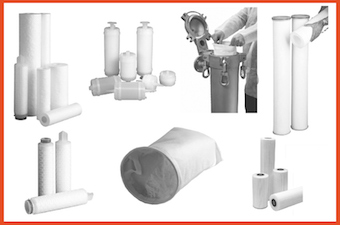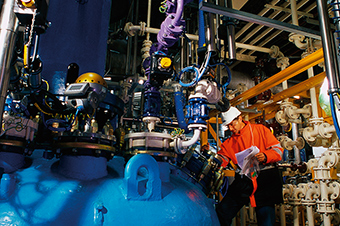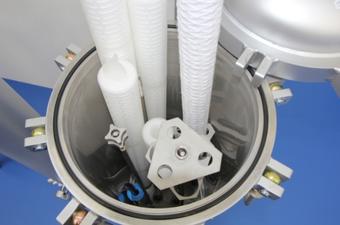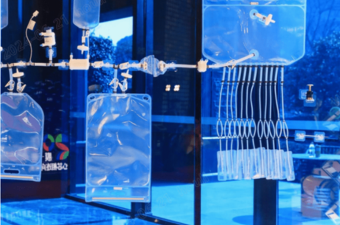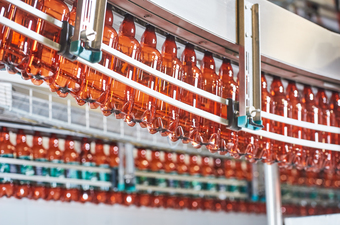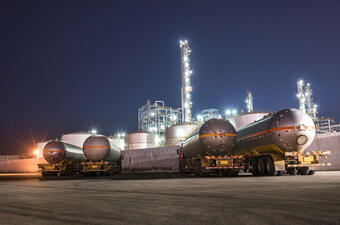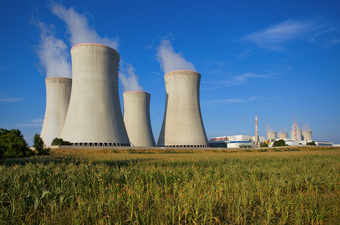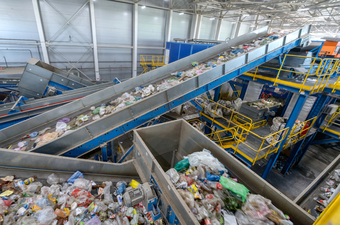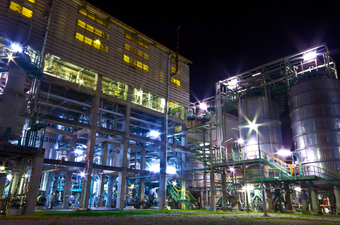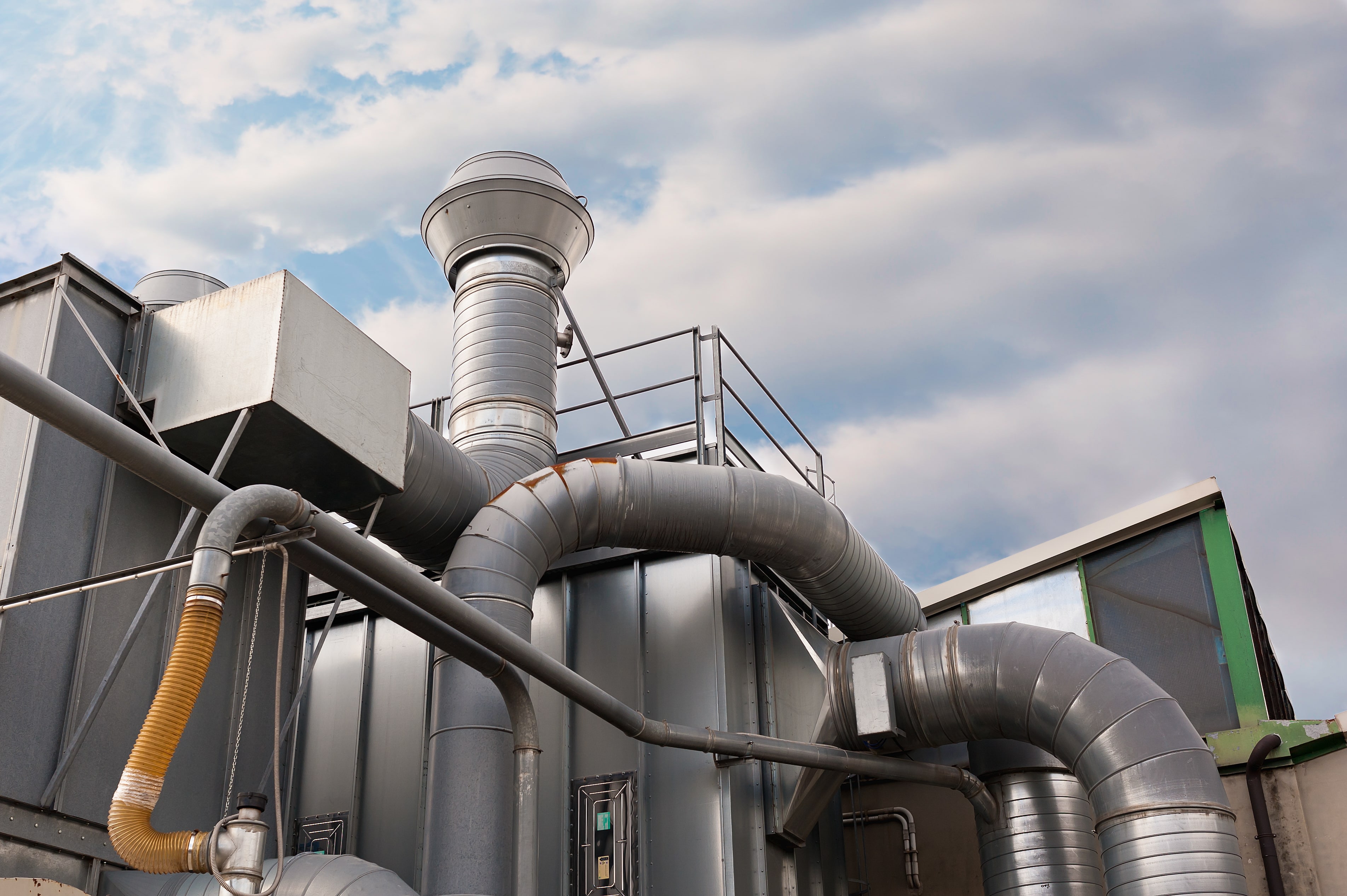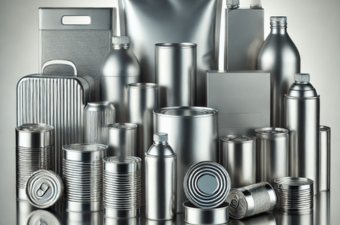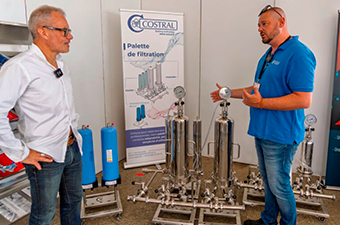Gasification is a process for converting solid carbonaceous materials (coal, petroleum coke, biomass, municipal waste, wood chips, car tyres, etc.) into combustible gases. Various filtration stages are involved throughout this industrial process, which takes place at high temperature and in a reducing atmosphere.
Gas production by pyrolysis
Synthetic natural gas is formed by pyrolysis in an atmosphere with a low (very low) oxygen content, to avoid combustion. Apart from a mineral fraction and a small quantity of unconverted carbon, which make up the solid residue, the waste is converted into synthesis gas, also known as syngas. When the gasification reaction is carried out at atmospheric pressure, this gas generally consists mainly of CO and H2 with a few percent of CH4. Depending on the process, it may also contain CO2 and N2 and a small quantity of long hydrocarbon chains, known as tars, which must be removed for certain applications.
The resulting syngas is a more energy-efficient fuel than the feedstock. It can also be used to produce methanol or synthetic fuels. Downstream processes can also be used to synthesise other compounds, such as fertilisers.
Crucial industrial filtration stages
Filtration of the solid waste present during gasification takes place at various stages of the production process. It uses filtration devices that depend on the stage of the process at which they are involved and the process used (coal gasification integrated into a combined cycle, pressurised fluidised bed combustion, recovery of biomass pellets or municipal solid waste, etc.).
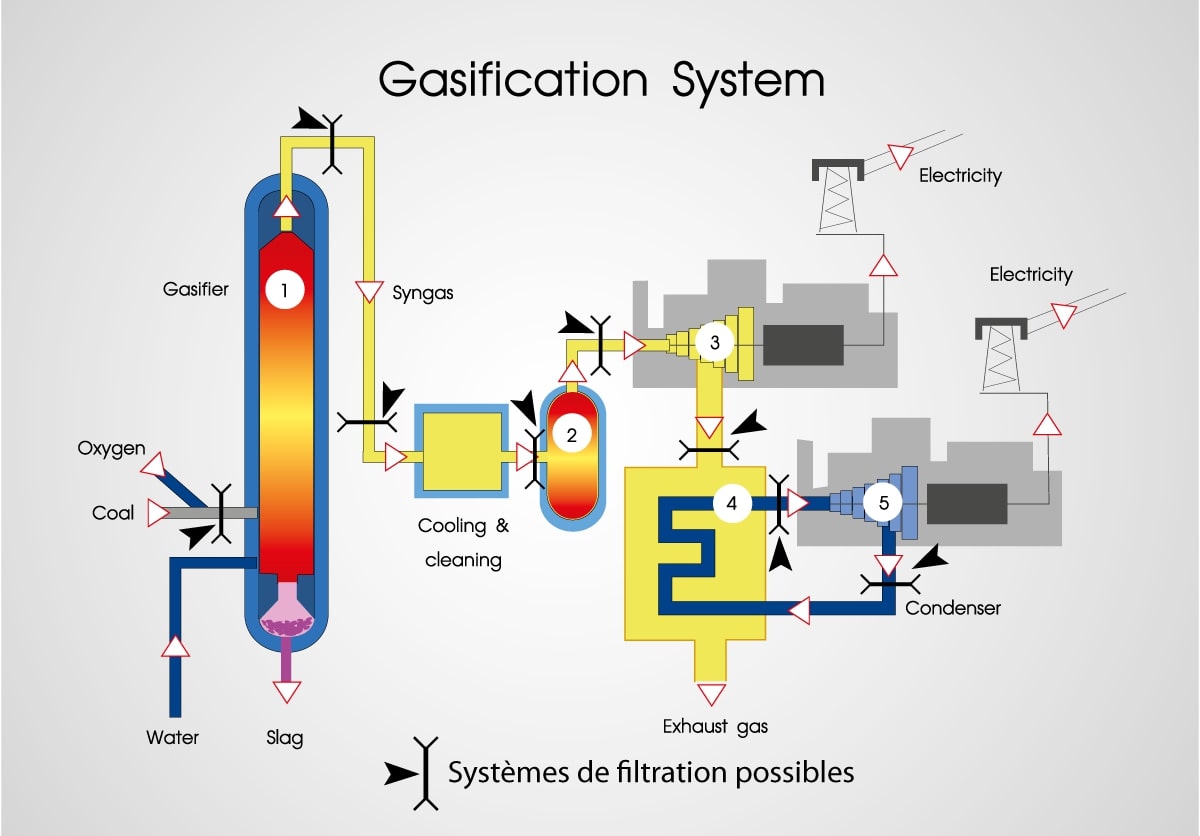
The problems of gas filtration are :
- filtration of the gas BEFORE the heat exchanger, at temperatures generally between 800 and 1000°C
- filtration of the gas AFTER the heat exchanger, this time at temperatures between 320 and 650°C.
- gas filtration after much greater cooling, using wet scrubbing systems at temperatures generally below 250°C.
The use of specific filters allows :
- improved quality and yield of the final product
- reduced system downtime and therefore operating costs
- a reduction in unnecessary losses of process fluids
- reduced maintenance costs
- reduced damage from wear and corrosion.
Prefer metal filters
(see a range of metal filters )
)
Metal filters are recommended for filtering synthesis gas at high temperatures and pressures. The procedure is complex, due in particular to the corrosive nature of the gas and the quantity and nature of the carbonaceous residue particles formed.
Metal filters offer many advantages:
- high permeability, enabling high flow rates to be used
- high and constant separation efficiency over time
- Integral resistance to high temperatures and thermal variations
- the possibility of using corrosion-resistant alloys
- reduced downtime thanks to easy cleaning
- a long service life
In-situ cleaning of the metal filter is essential to guarantee filtration performance. This can be achieved using dedicated nozzles, located above each filter element at a distance determined by the operating conditions and the size of the element, which project a jet towards the inside of the filter element.
Metal filters are available in a range of pore sizes from a few microns to submicron structures, manufactured in sintered composite metal mesh and sintered metal powder. Filter media are moulded in cylindrical elements and pleated cartridge formats. They can also be made to measure.
Expert advice :
Sinterflo® porous sintered metal materials are ideal for applications in environments subject to aggressive chemicals, high temperatures and high pressures.
To find out more about metal filters : Petrochemicals: gasification and gas filtration

















